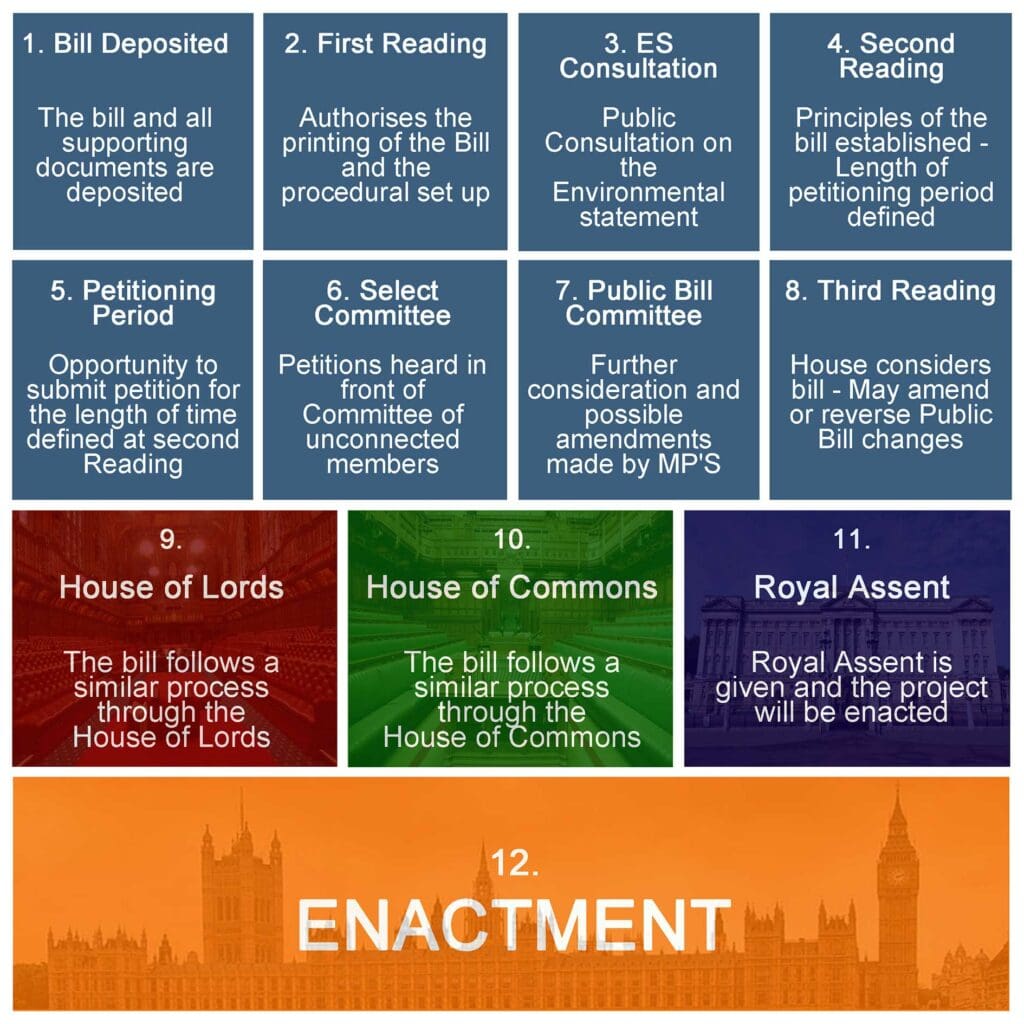Unlike other infrastructure or regeneration projects, High Speed 2 will be delivered by three specific pieces of legislation. On July 17, 2017, the government introduced the High Speed Rail (West Midlands to Crewe) Bill into Parliament, which specifically relates to Phase 2a of the route, having previously obtained Royal Assent for Phase1 earlier in 2017.
The Hybrid Bill involves a special parliamentary procedure that is debated in both Houses of Parliament and will give those affected by the Bill (whether an individual, business, or organisation) to ‘petition’ either House or both Houses to mitigate the effect of the Bill on their respective interests.
A Select Committee from each House of Parliament will consider petitioners concerns in a number of hearings.
